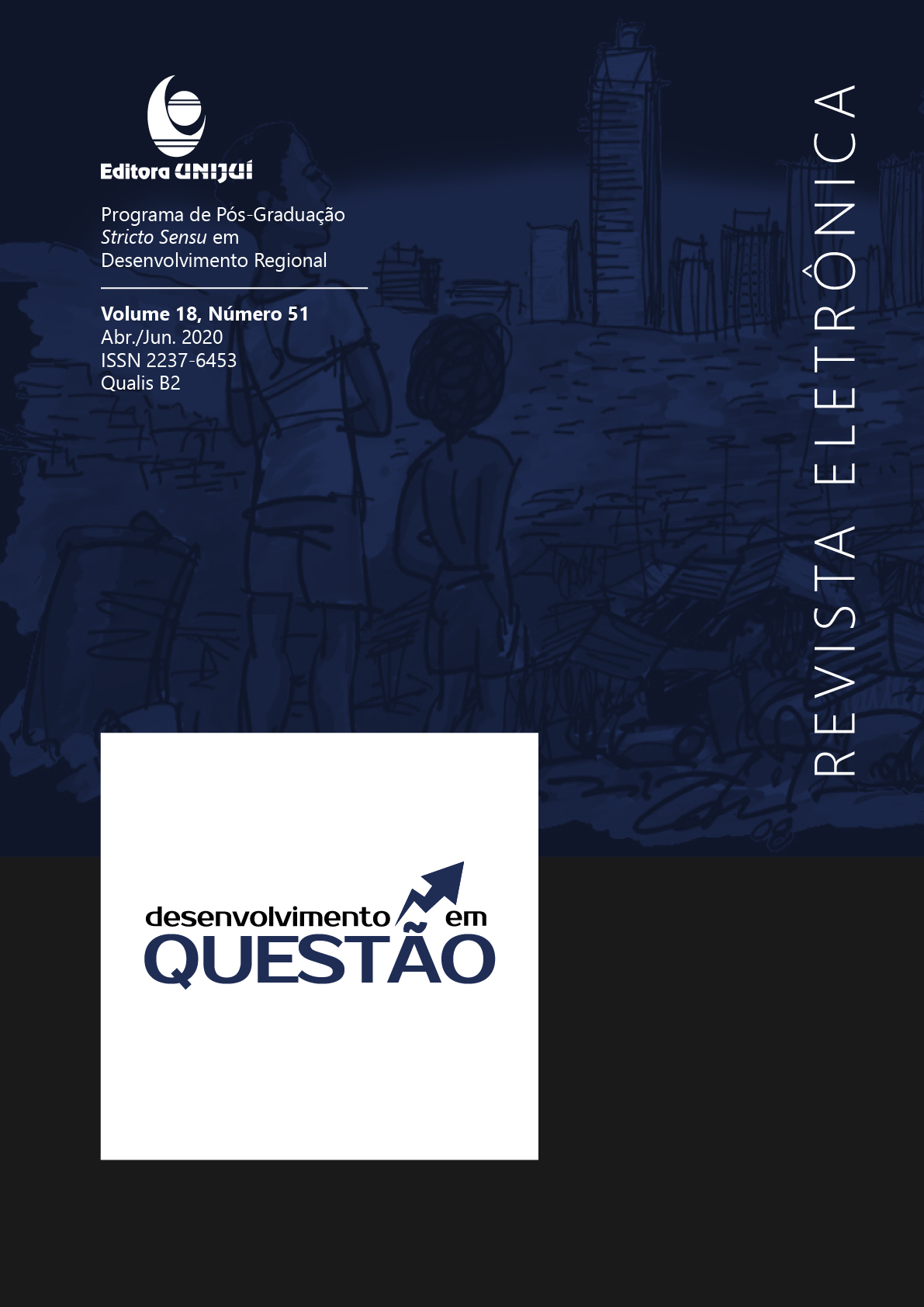Heterogeneous effects of Human Capital on wages: A quantile analysis in the Southern Region of Brazil
DOI:
https://doi.org/10.21527/2237-6453.2020.51.147-167Keywords:
Human capital. Wage. Discrimination.Abstract
Based on the economic and administrative importance of the salary theme, allied to the Human Capital Theory, the main objective of this study is to measure the effects of human capital on workers' wages in southern Brazil. Thus, it is proposed to estimate the impacts of human capital on remuneration for different income quantiles in the southern region of Brazil, while also identifying discriminatory factors. For this, the microdata of the National Survey of Continuous Household Sample (PNADc) of 2019 are used. The sample consists of 41,014 individuals, adopting the correction of the selectivity bias of Heckman (1979), having as analysis techniques quantile regressions with dummies variables and the Oaxaca-Blinder (1973) wage breakdown. The main results indicate that the impacts of human capital are heterogeneous and upward in income quantiles, suggesting evidence for the glass ceiling effect for women and nonwhites in southern Brazil. Concerning the assumption of discriminatory factors, negative impacts were found for the gender and race dummies, being the superior ones related to gender. The theoretical contribution to the area of people management, adding empirical results to wage policy issues. The practical contribution refers to workers regarding the returns on investing in education. It is also expected that this study contributed to the elaboration of public policies seeking wage equality in southern Brazil.
Downloads
Published
How to Cite
Issue
Section
License
By publishing in Revista Desenvolvimento em Questão, authors agree to the following terms:
All works are published under the Creative Commons Attribution 4.0 International License (CC BY 4.0), which allows:
Sharing — to copy and redistribute the material in any medium or format;
Adaptation — to remix, transform, and build upon the material for any purpose, even commercially.
These permissions are irrevocable, provided that the following terms are respected:
Attribution — authors must be properly credited, a link to the license must be provided, and any changes made must be indicated.
No additional restrictions — no legal or technological measures may be applied that legally restrict others from doing anything the license permits.
Notices:
The license does not apply to elements that are in the public domain or covered by legal exceptions.
The license does not grant all necessary rights for specific uses (e.g., image rights, privacy, or moral rights).
The journal is not responsible for the opinions expressed in the articles, which are the sole responsibility of the authors. The Editor, with the support of the Editorial Board, reserves the right to suggest or request modifications when necessary.
Only original scientific articles presenting research results of interest that have not been previously published or simultaneously submitted to another journal with the same purpose will be accepted.
Mentions of trademarks or specific products are intended solely for identification purposes and do not imply any promotional relationship by the authors or the journal.
License Agreement (for articles published from 2025 onward): Authors retain the copyright to their article and grant Revista Desenvolvimento em Questão the right of first publication.











